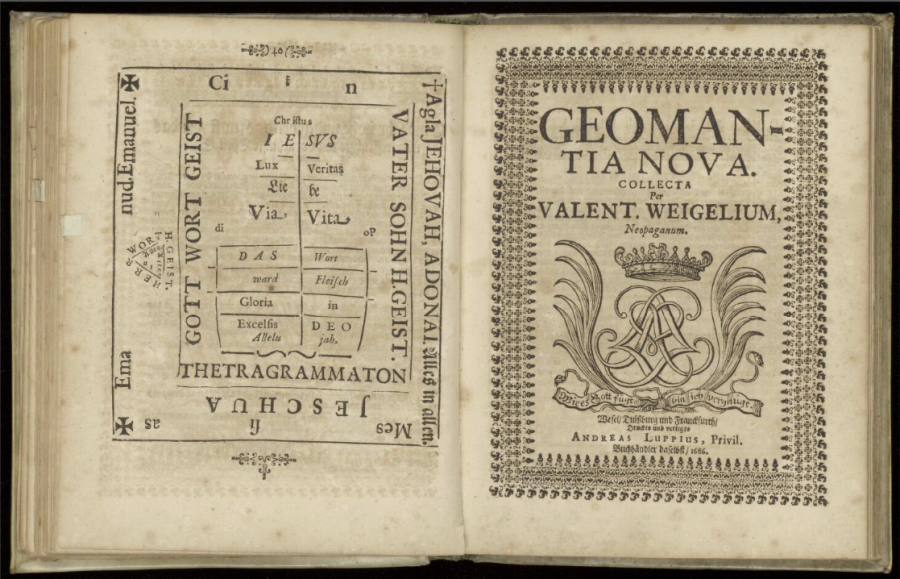
Back in December we brought you some exciting news. Thanks to a generous donation from Da Vinci Code author Dan Brown, Amsterdam’s Ritman Library—a sizable collection of pre-1900 books on alchemy, astrology, magic, and other occult subjects—has been digitizing thousands of its rare texts under a digital education project cheekily called “Hermetically Open.” We are now pleased to report, less than two months later, that the first 1,617 books from the Ritman project have come available in their online reading room. The site is still in beta, so to speak; in their Facebook announcement, the Ritman admits they are “still improving the whole presentation,” which is a bit clunky at the moment. But for fans and students of this literature, a little inconvenience is a small price to pay for full access to hundreds of rare occult texts.
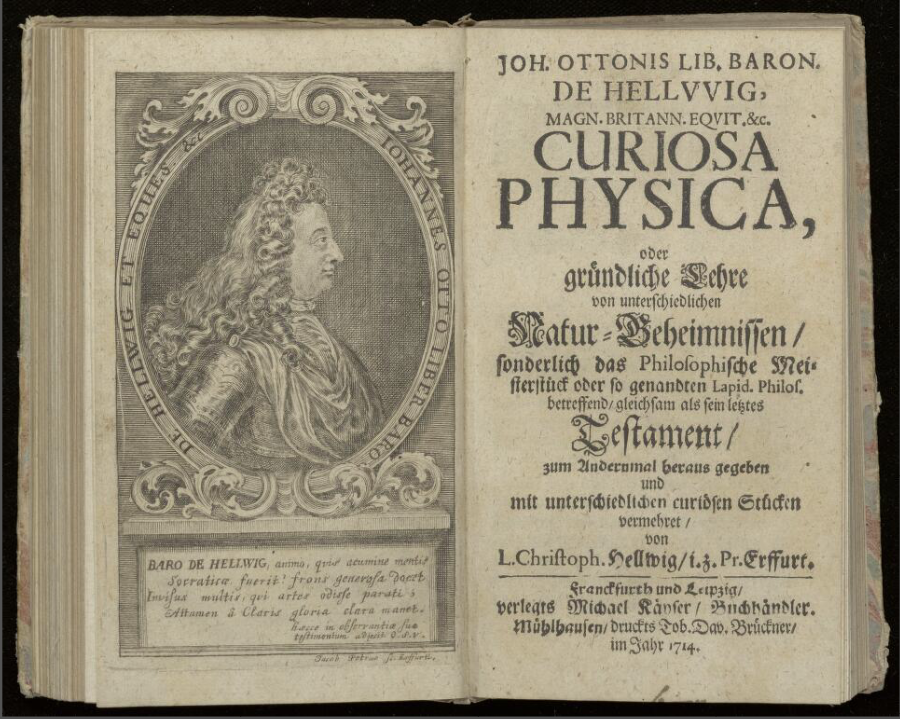
Visitors should be aware that these books are written in several different European languages. Latin, the scholarly language of Europe throughout the Medieval and Early Modern periods, predominates, and it’s a peculiar Latin at that, laden with jargon and alchemical terminology. Other books appear in German, Dutch, and French. Readers of some or all of these languages will of course have an easier time than monolingual English speakers, but there is still much to offer those visitors as well.
In addition to the pleasure of paging through an old rare book, even virtually, English speakers can quickly find a collection of readable books by clicking on the “Place of Publication” search filter and selecting Cambridge or London, from which come such notable works as The Man-Mouse Takin in a Trap, and tortur’d to death for gnawing the Margins of Eugenius Philalethes, by Thomas Vaughn, published in 1650.
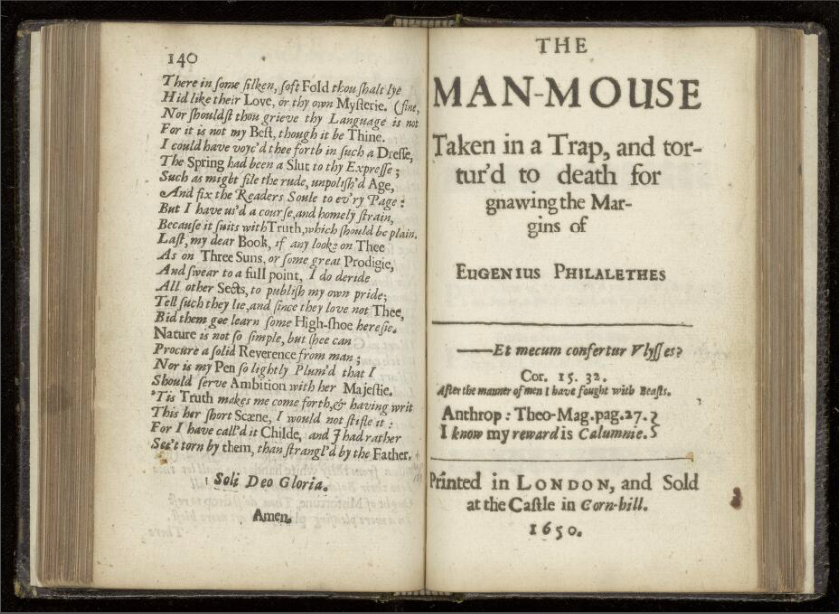
The language is archaic—full of quirky spellings and uses of the “long s”—and the content is bizarre. Those familiar with this type of writing, whether through historical study or the work of more recent interpreters like Aleister Crowley or Madame Blavatsky, will recognize the many formulas: The tracing of magical correspondences between flora, fauna, and astronomical phenomena; the careful parsing of names; astrology and lengthy linguistic etymologies; numerological discourses and philosophical poetry; early psychology and personality typing; cryptic, coded mythology and medical procedures. Although we’ve grown accustomed through popular media to thinking of magical books as cookbooks, full of recipes and incantations, the reality is far different.
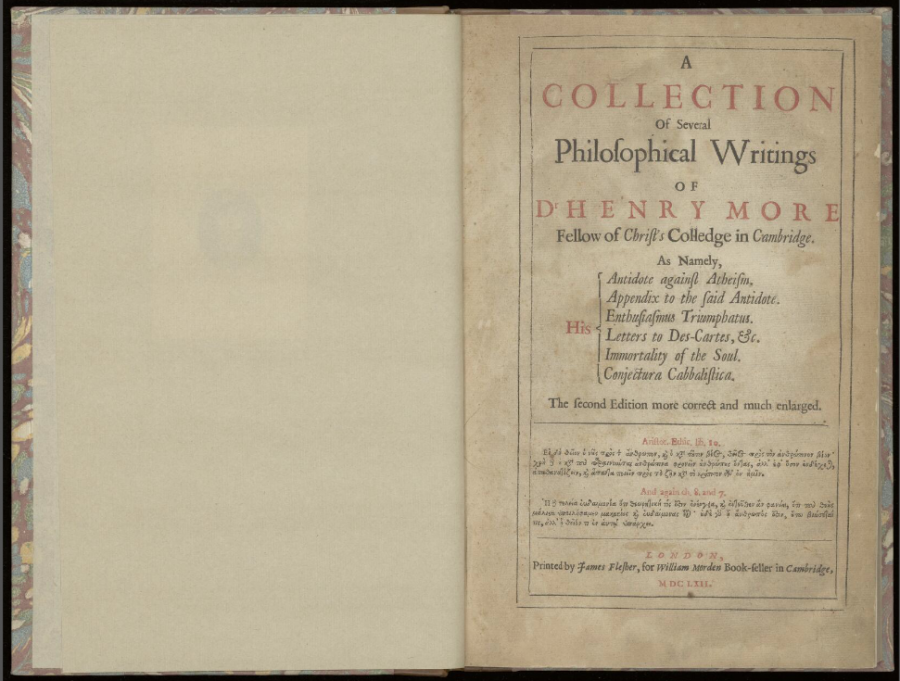
Encountering the vast and strange treasures in the online library, one thinks of the type of the magician represented in Goethe’s Faust, holed up in his study,
Where even the welcome daylight strains
But duskily through the painted panes.
Hemmed in by many a toppling heap
Of books worm-eaten, gray with dust,
Which to the vaulted ceiling creep
The library doesn’t only contain occult books. Like the weary scholar Faust, alchemists of old “studied now Philosophy / And Jurisprudence, Medicine,— / And even, alas! Theology.” Click on Cambridge as the place of publication and you’ll find the work above by Henry More, “one of the celebrated ‘Cambridge Platonists,’” the Linda Hall Library notes, “who flourished in mid-17th-century and did their best to reconcile Plato with Christianity and the mechanical philosophy that was beginning to make inroads into British natural philosophy.” Those who study European intellectual history know well that More’s presence in this collection is no anomaly. For a few hundred years, it was difficult, if not impossible, to separate the pursuits of theology, philosophy, medicine, and science (or “natural philosophy”) from those of alchemy and astrology. (Isaac Newton is a famous example of a mathematician/scientist/alchemist/believer in strange apocalyptic predictions.)
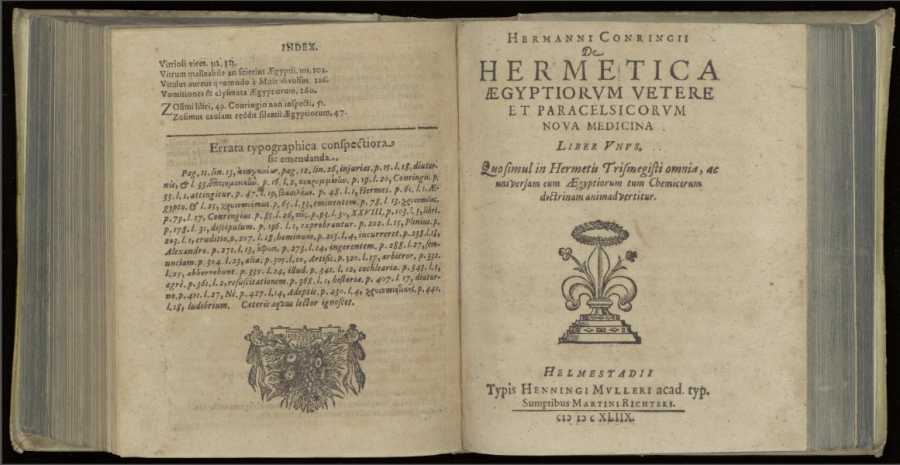
Given the Ritman’s alacrity and eagerness to publish this first batch of texts, even as it works to smooth out its interface, we’ll likely see many hundreds more books become available in the next month or so. For updates, follow the Ritman Library and The Embassy of the Free Mind—Dan Brown’s own Dutch library of rare occult books—on Facebook.
Enter the Ritman’s new digital collection of occult texts here.
Related Content:
Aleister Crowley Reads Occult Poetry in the Only Known Recordings of His Voice (1920)
Josh Jones is a writer and musician based in Durham, NC. Follow him at @jdmagness


Thank you and Dan Brown for making this possible. Though I can only read in English it should still be an adventure whatever the language. Thank you for the chance.
A wonderful effort
We are pleased to see you and we also are encouraged to be made aware of Dan Brown’s contribution
Those of us still studying at 82 welcome the freedom to STILL be studying for pleasure
A donation of no grandeur can be made of course if you can wait til the end of the Month
With kindest regards
Patricia
Since my last note I have modified my ABP settings and also White-Listed your site
Patricia
Great Efforts So Far. More grace To Your Able. Love You.
Thank you so much.
I have great interest in reading esoteric and occult books. Thank you for sharing.
Thank you!
I’m interested in reading occultic and alchemy books online
I love esoteric books.
wow!! thanks!!
please i don t have money please send me these magical book on ga*********@***oo.com
Am a student,very poor and tired of begging, pls send me the magic book I want to be rich on de*********@***oo.com
A candle loses nothing in lightening another one. Thank you for share…
Great news! Thank you.
I read English looking forward to what may come. Thanks
Thank you very much ! Great news !
The title of the article is totally misleading. It is printed books only, not one single manuscript. You could go on and correct it.
that was referring to the initial article of course.
Thank you so much for this great effort. I did not expect it could happen !
I hope the list includes the inspired and inspiring work by Dorothy Bryant entitled, “The Kin of Ata are Waiting for You.”
Thanks
I need books on practical side of casting spell, protection…
Thanks
Am so excited and interested to read even more
I love to read books on occult
Ism
I love to read the books on occult.
“images…images that don’t betray”. really looking forward to this endevour. coincides with evidence of the unknown.
i may have found new tresaure.
I love to read the occult book
Please send me he book. I am interested in the subject.
Thanks
How I wish I can ably donate something to support this praise-worthy course. I can not, because it may not be possible for me considering my financial standing and the place where I live in Ghana. Nevertheless, I cannot leave undone what I can presently do. God’s blessings be upon you” is my humble prayer. Amen.
I will like to get this occult book but I don’t have money
I will like to get this occult pls send me one
I really need to get an occultic book and be able to practice but I have no money to buy or read online
Thanks for providing this rare information.
God bless you.
Keep up the good work.
i would like to aquire on your colection how may i recieve a link to read ujpone ur occult collection please and thank you and blessed be.
I am totally Interested in all kinds of alchemy and occoult with all kinds of books that are antique and rare manuscripts, any languages, kindly allow me to read only iam very interested acquiring such knowledge and only knowledge purpose I use to read, no practice. Any one who do wanted to share they can share me there books.
Great collection if you are fluent in French, German, Latin, Hebrew, Greek and Dutch. Not many English translations of anything noteworthy sadly.